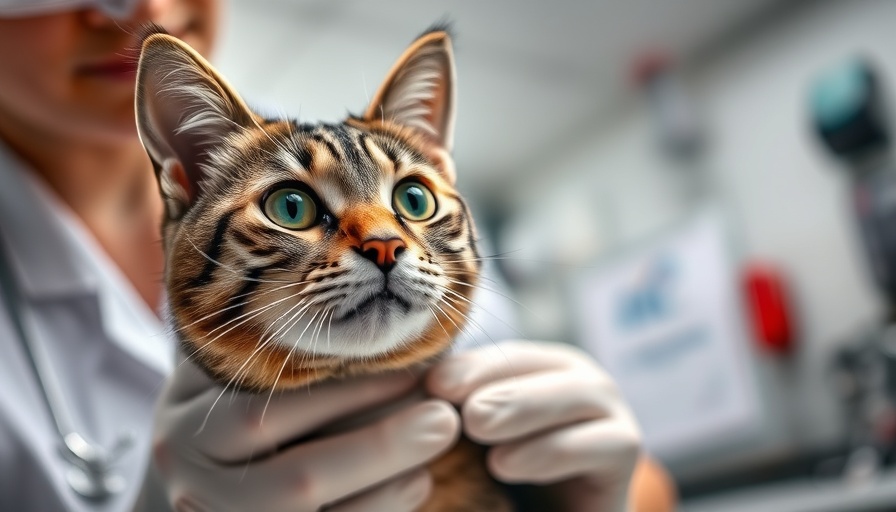
Understanding the H5N1 Threat to Pets
Recent findings have raised alarms in animal health circles, especially for pet owners in northwestern Indiana. A strain of H5N1, a highly pathogenic avian influenza, has been identified in a dairy worker from Michigan, demonstrating its potential to infect not just birds but also ferrets, which are common household pets. The discovery underscores the importance of being vigilant about the health conditions affecting our furry family members. Pet lovers should be informed about the nuances of avian influenza and its possible repercussions for domestic animals.
Why Should Pet Owners Be Concerned?
As someone who cherishes pets as part of the family, understanding the risks associated with H5N1 is crucial. While human transmission seems limited, and direct infection in pets is rare, the potential for zoonotic diseases (diseases that can jump from animals to humans) makes this development noteworthy. Ferrets, similar in respiratory structure to birds, may prove vulnerable to this strain, which could lead to heightened anxiety for their owners regarding pet safety and well-being.
Community Responses and Safety Measures
Encouragingly, local veterinary experts emphasize that although H5N1 poses a concern, the likelihood of transmission is still relatively low in domestic pets. Awareness and education are powerful tools. The Michigan case has prompted pet owners to take proactive measures, such as ensuring their pets receive regular check-ups and vaccinations. Furthermore, community gatherings in local neighborhoods could foster discussions on preventive health care practices for pets, helping to better equip families against unforeseen health threats.
Your Role in Protecting Your Pets
As a pet owner, implementing simple precautions can greatly enhance your pet's safety. Make it a habit to monitor your pets closely and avoid environments where they might encounter wild birds, especially in the wake of these reports. Consult veterinarians about the best ways to keep your pets healthy, and stay informed about ongoing research regarding H5N1. By being proactive, you can contribute to the overall health and safety of your beloved companions.
Conclusion: Stay Informed, Stay Connected
In light of the recent revelations regarding H5N1, staying connected with local health resources and other pet owners can empower you to act in the best interest of your pets. Share your experiences, engage in community discussions, and encourage others to remain vigilant. The more educated we are, the better equipped we’ll be to safeguard our pets and families.
 Add Row
Add Row  Add
Add 




Write A Comment